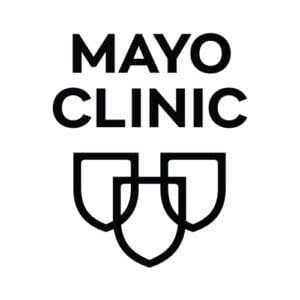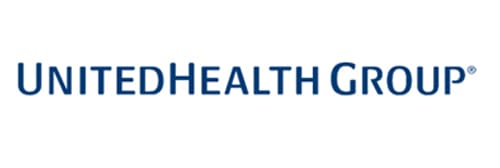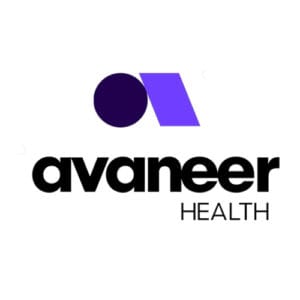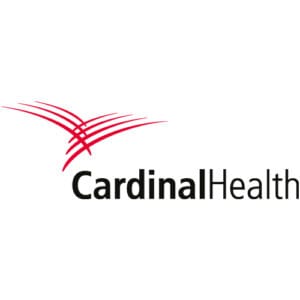
How Much Does Account Abstraction Wallet Development Cost?
January 31, 2025
How To Raise Millions in Real Estate With ICO Token Development?
January 31, 2025The healthcare industry has faced a tremendous transformation in the past few years. However, the increasing digitization of patient records, medical research, and pharmaceutical supply chains has also contributed to healthcare frauds, data breaches, drug counterfeiting, and more. The increasing need for secure and transparent data management systems has made blockchain attractive for healthcare organizations.
According to Grand View Research, the global blockchain technology in the healthcare market was valued at $7.04 billion in 2023 and is projected to expand at a CAGR of 63.3% from 2024 to 2030.
Blockchain has emerged as a revolutionary solution to address the pain points of the existing healthcare system. With its decentralized, immutable, and transparent record-keeping capabilities, blockchain healthcare solutions have become a smart choice for several healthcare organizations.
Today, several leading healthcare companies are leveraging blockchain to strengthen their ecosystem. Let’s explore the list of companies using blockchain in healthcare to drive next-level innovation in 2025.
Why Should Healthcare Companies Invest in Blockchain?
The healthcare industry deals with vast amounts of sensitive patient data, medical records, and pharmaceutical transactions. However, it faces numerous challenges that require a more secure and efficient system:
Pain Points in the Healthcare Sector:
- Data Breaches: Cyberattacks expose sensitive patient records, which raises privacy concerns.
- Inefficiencies in Data Sharing: Lack of interoperability among hospitals, insurers, and researchers slows down medical advancements.
- Counterfeit Drugs: Fake pharmaceuticals pose a severe threat to patient safety and public health.
- Lack of Patient Control: Patients often have limited access to and control over their medical records.
- Fraudulent Insurance Claims: False claims increase healthcare costs and burden insurers.
How Blockchain Healthcare Solutions Solve These Challenges:
- Data Security & Privacy: Immutable records prevent unauthorized tampering and enhance patient privacy.
- Interoperability: Enables seamless and secure sharing of medical records across institutions.
- Supply Chain Transparency: Tracks pharmaceuticals from production to delivery, which helps combat the challenge of drug counterfeiting.
- Fraud Prevention: Verifiable blockchain records ensure authenticity in billing and insurance claims.
- Decentralization: Eliminates intermediaries, reducing costs and enhancing efficiency.
Top 5 Healthcare Companies Leveraging Blockchain for Innovation
Now, let’s examine the top five blockchain healthcare companies you can check out to understand the potential of blockchain in this industry.
1. Pfizer

Pfizer is one of the companies using blockchain in healthcare to address the serious challenges of the industry. The company is notably involved in the MediLedger project- an initiative of Chronicled, Inc., a San Francisco-based technology company, that creates blockchain-based ecosystems & supply chain solutions.
Mediledger leverages blockchain technology to achieve three key objectives:
- Maintain synchronized public data to ensure all parties access the same “source of truth.
- Securely store an immutable transaction record and protect valuable business intelligence while maintaining confidentiality.
- Utilize smart contracts to enforce business rules, execute transactions, and safeguard the system’s integrity.
The projects help address the pharma industry’s serious challenges, including chargebacks, misalignments between contracting and chargebacks, and the separate negotiation of pricing and eligibility contracts. Pfizer is one of the blockchain healthcare companies that is paving the way for a more transparent and efficient healthcare system through Mediledger.
Key Benefits
- Enhanced data synchronization
- Immutable & confidential records
- Smart contract automation
- Chargeback & pricing transparency
2. Mayo Clinic

Mayo Clinic, a leading American healthcare organization, has partnered with the Dutch blockchain startup Triall to revolutionize clinical trial design and streamline study data management through blockchain technology. Triall’s eClinical platform facilitates critical functions such as document management, data capture, study monitoring, and consent. The collaboration aims to showcase the power of an immutable public ledger audit trail using blockchain technology to improve the integrity of clinical trials. This ensures that investigators, regulators, and stakeholders can confidently review and evaluate trial-related data, knowing that the records are secure and cannot be altered, which strengthens the clinical trial’s integrity and trustworthiness.
Key Benefits
- Enhanced data integrity
- Improved trust & compliance
- Streamlined clinical trial management
- Efficiency & cost reduction
3. UnitedHealth Group

UnitedHealth Group is also one of the companies using blockchain in healthcare through its involvement in the Synaptic Health Alliance- a collaborative initiative that includes major healthcare organizations such as UnitedHealthcare, Optum (a part of UnitedHealth Group), MultiPlan, Humana, and Quest Diagnostics.
The Synaptic Health Alliance focuses on leveraging blockchain to improve provider data management and sharing—an area that presents significant challenges within the healthcare industry. Inaccurate or outdated provider information often leads to administrative inefficiencies, higher costs, and disruptions in patient care. The alliance addresses these issues and creates more streamlined and reliable processes that improve overall healthcare delivery.
Key Benefits
- Improved provider data management
- Streamlined administrative processes
- Cost reduction
- Improved quality of healthcare data
4. Avaneer Health

Avaneer Health is a secure, participant-driven network designed to optimize care throughout individuals’ lifetimes. Built on blockchain and FHIR technology, Avaneer Health is one of the blockchain healthcare companies that offer easy access to data and fuel transparency and interoperability in healthcare. Beyond providing a robust marketplace for innovation, Avaneer Health offers solutions for payer-to-payer data exchange, eligibility verification, prior authorization, and more.
Founded in 2020, Avaneer Health is backed by a consortium of industry leaders- —including Cleveland Clinic, Aetna (a CVS Health company), Anthem, Health Care Service Corporation (HCSC), The PNC Financial Services Group, IBM, and Sentara Healthcare. With ongoing support from these prominent players, Avaneer Health is poised to be a key driver in transforming the healthcare industry, addressing consumer needs with greater efficiency and effectiveness.
Key Benefits
- Secure & inclusive network
- Blockchain & FHIR-powered interoperability
- Seamless payer-to-payer data exchange
- Simplified eligibility & prior authorization
5. Cardinal Health Inc.

Cardinal Health is a global manufacturer and distributor of medical and laboratory products. With 50 years of experience and operations in over 40 countries, the company is a massive provider of products and services for healthcare facilities. Similar to Pfizer, the company collaborated with Chronicled for a blockchain solution on the MediLedger Network. This partnership improves operational efficiency within the pharmaceutical supply chain and ensures a frictionless experience for pharmacies nationwide. These blockchain healthcare solutions enable Cardinal Health to streamline the complex process of pharmaceutical chargebacks and foster stronger connectivity between its suppliers and customers.
Key Benefits
- Pricing integrity and contract eligibility data
- Automation of membership and customer evaluation processes
- Elimination of most chargeback errors
- Reduction in revenue leakage

Conclusion
Blockchain is giving an edge to the healthcare sector bringing more security, transparency, and efficiency into the system. From securing clinical trial data to ensuring seamless interoperability and preventing counterfeit drugs, blockchain’s impact is far-reaching. Today, companies using blockchain in healthcare are not only addressing industry challenges but also setting the stage for a smarter, more connected healthcare ecosystem. If you’re from the healthcare industry and looking to leverage blockchain for transformative solutions, Antier is here to help.
As a renowned blockchain development company, Antier offers expert assistance in building innovative, secure, and scalable blockchain solutions tailored to the unique needs of the healthcare sector. With a strong track record of successful blockchain healthcare solutions development, Antier empowers your organization to optimize operations, enhance data security, and deliver better patient outcomes. Reach out to Antier and be part of the future of healthcare!
Schedule a free consultation call with our team today!



